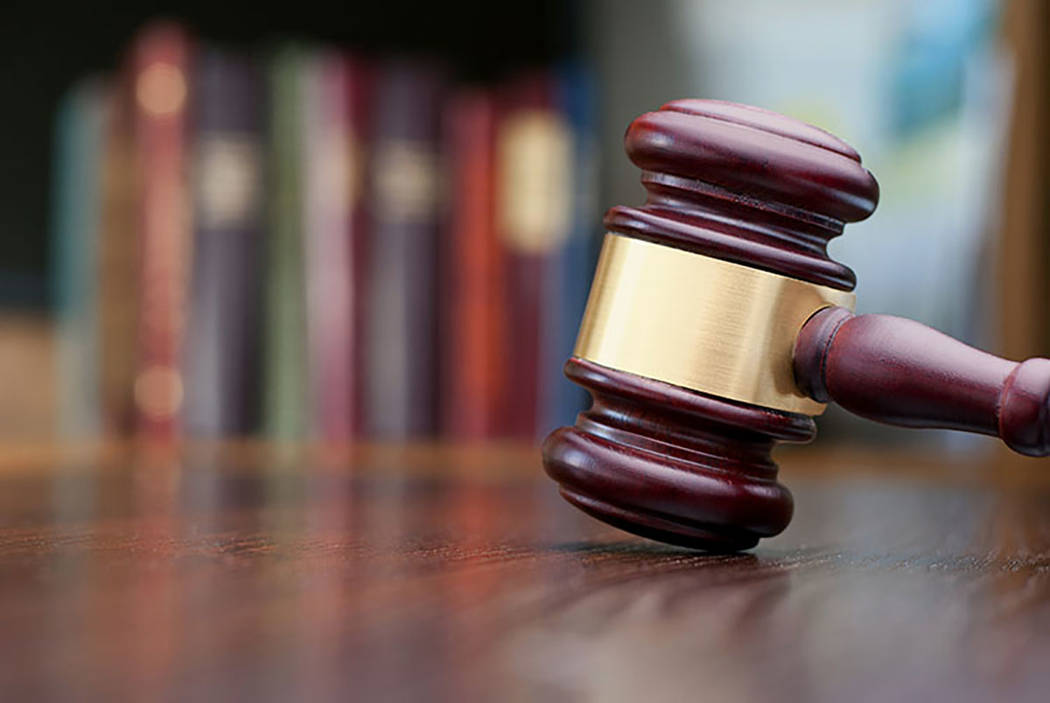Federal court in Las Vegas has dozens of secret cases
On any given week, dozens of criminal and civil cases move through the federal court system in Las Vegas hidden from public view.
Agents and prosecutors secretly obtain warrants, collecting evidence for months, even years in criminal investigations.
“It haunts me, because I wonder what didn’t I get,” criminal defense attorney Louis Schneider said. “What would have helped my client?”
In the federal court system in Las Vegas, there were 72 sealed but active civil cases, along with 26 criminal cases with no public access, as of late this week, according to court clerk Debra Kempi.
Most of the civil cases are forfeitures filed under seal by the U.S. attorney’s office, she said, while seven were filed under the False Claims Act, which imposes liability on those who defraud government programs. The other four were listed simply as “miscellaneous.”
As of Friday, 14 of the active criminal cases under seal sought a fugitive from justice, Kempi added.
The figures were obtained by the Las Vegas Review-Journal during the nationally recognized Sunshine Week, which is held each year to focus attention on access to public information, open government and journalism’s role in promoting transparency.
The number of cases under seal in federal court fluctuates as cases are unsealed or closed, Kempi said.
Week after week, lawsuits filed in U.S. District Court in Nevada enter the system with only a case number and ambiguous lettering. Names of the plaintiffs and defendants are redacted, and the type of litigation is not revealed.
But that sealing must first be approved by a judge.
Local court rules state that such cases are accompanied by a motion to seal the details. Such litigation could ultimately be made public, according to Kempi.
“All papers filed under seal will remain sealed until the court either denies the motion to seal or enters an order unsealing them,” according to the Local Rules of Practice, approved in May 2016.
Showing of ‘good cause’
Criminal charges sought by the Department of Justice often are filed in secret as investigators gather information and agents button up their case.
“In federal court, filed documents, including indictments and plea agreements, are sealed only after court authorization with ‘good cause’ shown,” Trisha Young, spokeswoman for the U.S. attorney’s office in Nevada, wrote in an email. “A showing of ‘good cause’ exists in a number of situations, including where revealing a person’s name could lead the person to flee from law enforcement apprehension, the destruction of potential evidence, the prevention of witness or victim tampering, or for any other reason the court deems appropriate. With limited exception, documents are unsealed by the court only after the ‘good cause’ for sealing has dissipated.”
Retired U.S. District Judge Philip Pro said that, whether sealed cases and information are criminal or civil, judges must provide sound reasons for doing so.
“It’s not just something done arbitrarily by Judge X, Y or Z,” Pro said. “You’ve got to be able to articulate the reason, because whatever you do could be subject to a higher court.”
He offered his opinion that the sealing of cases “is not a situation that is abused.”
Criminal defense attorney Todd Leventhal, a former federal prosecutor, said his clients are sometimes made aware of a federal grand jury investigation through what is known as a target letter. The secret process helps protect the identity of informants, whose names may never be revealed because so many criminal cases in federal court are resolved before trial.
“The government strikes, and they strike big, and they strike to make sure that everybody in their net is accounted for,” said Leventhal, who worked in the Northern District of California under Robert Mueller, now special counsel overseeing the investigation into Russian interference in the 2016 presidential elections.
‘Double-edged sword’
The long investigations often result in voluminous packets of evidence.
“But it’s kind of a double-edge sword,” Schneider said. “They have so much time to work up an investigation that I don’t see all of the evidence, only the evidence that they plan on using in prosecution.”
Civil matters also may be sealed in state court after litigation is settled, and that restriction can be harmful to the public, said longtime Las Vegas defense attorney Tom Pitaro.
“If a person is out there committing violations sufficient to sue, then the public at least has a right to know,” he said. “You’d like to know if the doctor you’re going in to have an operation has four cases against him where he’s settled.”
Since 2009, at least 94 civil cases and three business court cases have been sealed by court order in Clark County District Court, according to documents provided to the Review-Journal by spokeswoman Mary Ann Price.
She said judges often strive to make sure the public has access to state proceedings.
Unlike at the Lloyd George U.S. Courthouse, where cameras are not allowed, media outlets are permitted to photograph and videotape inside courtrooms at the Regional Justice Center.
“The court has a philosophy of being open and transparent and compliant,” Price said. “That’s the court’s mandate.”
Contact David Ferrara at dferrara@reviewjournal.com or 702-380-1039. Follow @randompoker on Twitter.























